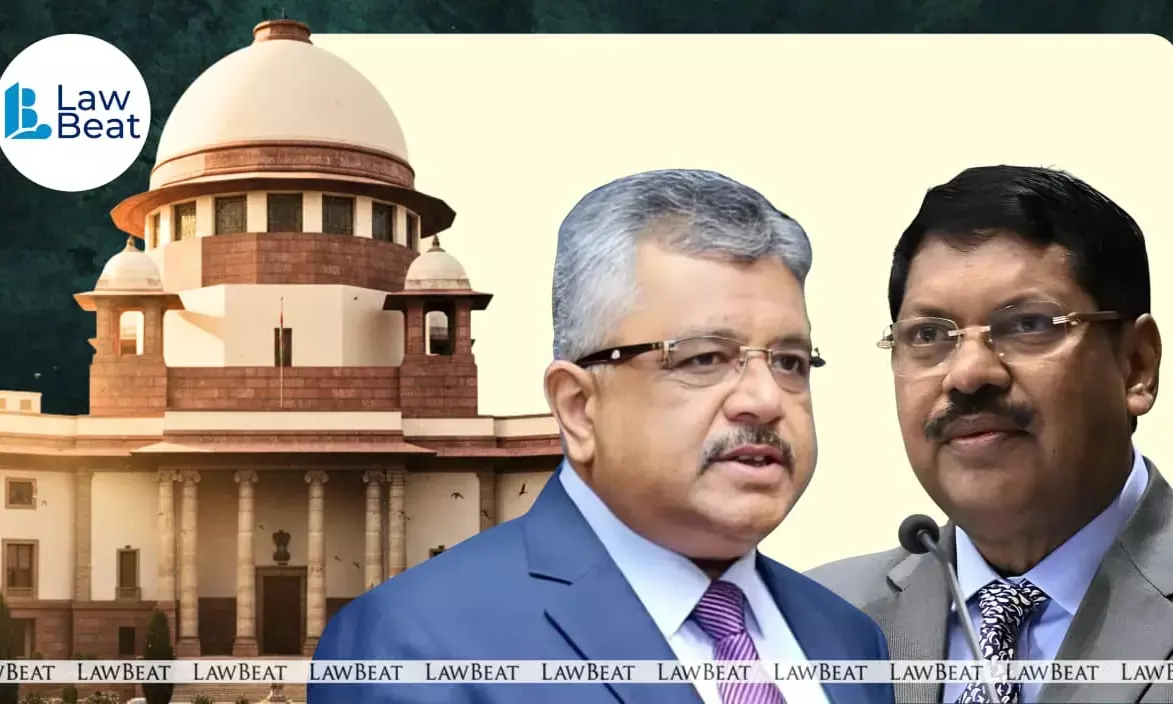Solicitor General Tushar Mehta lauds CJI Gavai on Presidential Reference judgment in farewell address

Supreme Court yesterday had delivered a unanimous decision in a special reference case.
Chief Justice of India BR Gavai will demit office on 23rd November 2025. A ceremonial bench was held in Supreme Court today for his farewell.
The ceremonial bench comprised of CJI Gavai, CJI designate Justice Surya Kant and Justice Vinod Chandran. The bench began with an address by Attorney General R Venkataramani who dedicated a poem to the CJI.
Solicitor General Tushar Mehta also addressed the bench. Referring to the Presidential Reference case, in which the Supreme Court gave an opinion yesterday, SG Mehta said, "All questions were answered, nothing was left unanswered, in 110 pages, a judgment should be a judgment, not an article for law review..".
SG Mehta also referred to an 'Indianness' in the judgments that were seen during CJI Gavai's tenure.
On the CJI's persona, the SG said, "Your lordship has grown as a judge, but you have remained the same human being..".
The Supreme Court yesterday delivered a unanimous decision favoring the executive in a special reference case which was registered on July 19 by the court's own motion after President Droupadi Murmu had framed 14 questions seeking an opinion from the Supreme Court on issues regarding grant of assent on Bills by the President of India and Governors of states.
Notably, a five-judge bench set aside its decision from April 8, 2025, wherein a division bench had laid down structured timelines: one month for Governors under Article 200 and three months for the President under Article 201. It has said that the decision led to usurpation of powers of governor or president and was thus antithetical to the spirit of the Constitution and the doctrine of separation of powers.
Supreme Court's bench comprising CJI BR Gavai, Justices Surya Kant, Vikram Nath, PS Narasimha and AS Chandurkar had on July 22 issued notice to the Union of India and all the state governments in a special reference case which was registered by the court's own motion titled, "IN RE : ASSENT, WITHHOLDING OR RESERVATION OF BILLS BY THE GOVERNOR AND THE PRESIDENT OF INDIA vs.".
This unprecedented judicial direction led to a Presidential Reference seeking clarity on 14 questions, including whether courts can judicially craft timelines where the Constitution is silent, whether “deemed assent” is permissible, and the permissible scope of judicial review. In the absence of a constitutionally prescribed timeline and the manner of exercise of powers by the Governor and the President, can timelines be imposed and the manner of exercise be prescribed through judicial orders for the exercise of discretion, President Murmu had stated.
The five-judge Bench led by CJI B.R. Gavai had underlined that it is not sitting in appeal against the April judgment, but only rendering an advisory opinion, after the President's reference. The April verdict stressed that constitutional actors must act “with all possible speed” and prescribed outer limits for assent to prevent indefinite executive inaction. The judgment drew parallels with past rulings where the Court introduced timelines to prevent abuse, such as in disqualification proceedings by Speakers. It is this attempt to judicially enforce deadlines that now stands questioned.
President Murmu had asked Supreme Court if in light of the constitutional scheme governing the powers of the President, is the President required to seek advice of the Supreme Court by way of a reference under Article 143 of the Constitution of India and take the opinion of the Supreme Court when the Governor reserves a Bill for the President’s assent or otherwise? “Are the decisions of the Governor and the President under Article 200 and Article 201 of the Constitution of India, respectively, justiciable at a stage anterior into the law coming into force? Is it permissible for the Courts to undertake judicial adjudication over the contents of a Bill, in any manner, before it becomes law?”, the President further asked.
